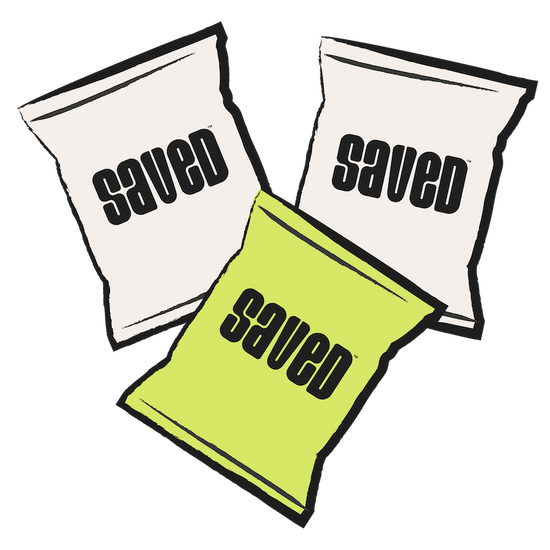How we take our impact further

Overconsumption & food waste
With an overpopulated planet, we are: overproducing, wasting over 1/3 of the world’s food and over-consuming. Also, only 4 crops make up 60% of the world's calorie intake. The urgency for diversification in foods and more sustainable food alternatives will continue to rise as the population grows and resources shrink.

Inaccessibility of novel foods
One of the biggest barriers to growth for the edible insect sector in Europe is Novel Foods Regulations. Novel Food is defined as food that had not been consumed to a significant degree by humans in the EU before 1997 (e.g. CBD too). That means to introduce a ‘novel food’ into the European market, companies need to submit a Novel Food Application to make sure the new food is safe to be eaten by humans. Cricket protein are approved to be eaten in Europe - contact us if you want to know more about this.

*(FAO, 2013)
Our goal
2 billion people across the world eat insects regularly, so us, the western countries, are the odd ones out!* Our goal is to be widely available, not only in the UK but worldwide, to demystify once and for all insect protein and make our products accessible to everyone.
Reinvestment
We are a for profit organisation, meaning that we will reinvest profits into in research and innovation to fulfil our vision (to bring the planet’s food wonders from extraordinary to ordinary).
'Go to' entity
As Board Member of the UK Edible Insect Association (UKEIA), we fight to make it possible to sell and consume different species of insects in the UK & Europe.
Wanna hear more?
We try to be a spoke-business for our industry to make sure people learn about insect protein’s benefits.
Interested in us giving a talk? Email us at saveme@savedfood.co.uk

Climate Crisis
What we eat and how we grow our foods makes up a key factor of climate change - 26% of greenhouse gas emissions come from the food system and more than half of those emissions can be attributed to livestock production. The urgency for more sustainable food alternatives is clear; focusing on the circular economy, nutrition & diversification of nutrients will be the key to revolutionising the current food system.
CO2
More than 20% of CO2 & CH4 and 90% of world's fresh water consumption are issued from the food industry.
GHG
The global food system is estimated to contribute around 26% of greenhouse gas emissions and more than half of those emissions can be attributed to livestock production. The UN predicts GHG emissions will reach 55 gigatonnes by 2030.
Methane
Avoiding 1 ton of methane (CH4) emissions is as effective in the near term as cutting 86 tons of Co2. 27% of US 2019 methane emissions come from ruminant digestion (94 million cows).
Deforestation
Deforestation contributes about 4.8 billion tonnes of carbon dioxide a year which is equivalent to nearly 10% of annual human emissions. Beef is responsible for 41% of global deforestation. Soya is also part of this discussion.

The answer is... sustainable proteins!
Alternative proteins could help save up to 6.1 gigatonnes of greenhouse gas emissions by 2035.
Alternative meats have 1/5 to 1/10 the environmental impact of conventional animal meat. Insects require dramatically less food & energy than any other farmed livestock. Insects are usually part of a circular model in which nothing is wasted although our crickets' feed is very controlled to keep the quality of the protein consistent.
This is how we can deliver on:
-

Transportation
We maximise our pallets & truck capacity to the fullest (95% capacity load) to avoid any wasted energy/pollution
-

Puffs packaging
Our packs are fully recyclable. Check instructions on the pack.
-

Retail boxes
Our retail boxes are 100% sustainable, compostable and plastic free - FSC certified
-

Ecommerce
Our e-com packaging is made from 100% recycled plastics. Our mailers give plastics already in circulation a second life, a better alternative to single-use plastic mailers. They are also recyclable at soft-plastic collection points
Going beyond
Net zero
We are currently mapping out all of our value chain elements to understand where the biggest impact comes from. Currently, it's our production site so we are working with our manufacture to enable sustainable practices.
Circular economy
Vertical farming
- Our crickets are vertically farmed in the EU. We promote vertical farming as part of our business to reduce land, Co2 and water utilisation for animal-based protein (vs. intense livestock farming). Vertical farming is the practice of growing crops in vertically stacked layers - it's a way of taking the controlled environment of a modern commercial greenhouse to the next level. By stacking crops vertically on shelves or tall pillars, vertical farming allows 10 times the yield for a given land area.
Manufacturing
- Our manufacturer partners with local farmers to give all surplus or wastage of production to pigs.
How to close the loop in everything we do?
- Recyclability is at the top of our mind to make our packaging recyclable in more places.
- No food goes to waste, if we have stocks left, we partner with food banks or even give the products as samples to make sure everyone is a winner!
B Corp
This is on our to-do list! We are currently working towards obtaining the B Corp certification in 2024.





